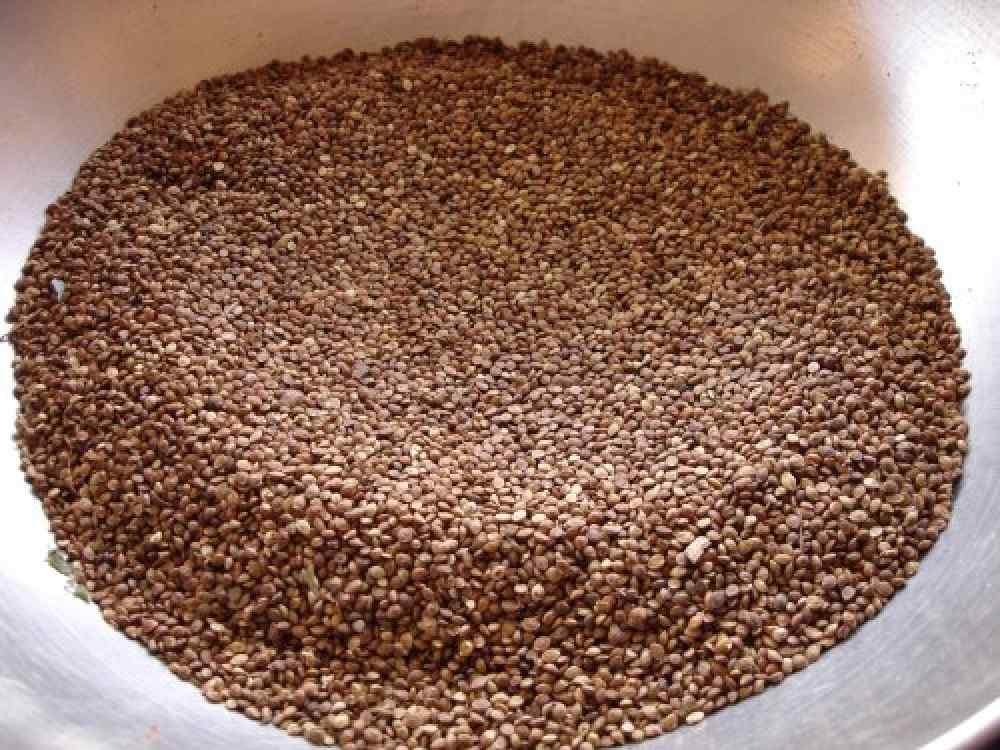Kodo millet, also known as varagu in Tamil, is a small, brownish cereal. Its botanical name is Paspalum scrobiculatum.
Kodo millet is originated from West Africa.
Now, it is used in many countries, especially in Nepal, India, and Vietnam.
In India, people consume it like rice or use its flour to make pudding. Kodo millet is also used to feed pigs, sheep, and goats.
Kodo millet is exceptionally nutritious and offers several health benefits (1).

Nutritional Value:
Kodo millet is a rich source of protein, iron, and calcium. Calcium is vital for our bone health. It also has a negligible amount of B Vitamins, which are essential for your nervous system.
100 grams of kodo millet provides the following nutrients (2):
- Calories: 353 kcal
- Dietary Fiber: 5.2 grams
- Protein: 9.8 grams
- Carbohydrate: 66.6 grams
- Fat: 3.6 grams
- Iron: 1.7 mg
- Vitamin B-6: 0.15 mg
- Calcium: 35 mg
- Vitamin B2: 0.09 mg
- Vitamin B3: 2 mg
Health Benefits Of Kodo Millet:
1. Good for diabetes:
Kodo millet has a moderate glycemic index (GI). Hence, it will not spike your blood sugar levels rapidly (3).
Also, it is exceptionally high in dietary fiber and protein. 100 grams of kodo millet provides 20% of the recommended daily protein and fiber intake.
Both fiber and protein contents in kodo millet may slow down the digestion and sugar release into the bloodstream.
Moreover, studies on rats reveal that kodo millet possesses anti-diabetic activities, which may help reduce the blood sugar levels (4).
Therefore, kodo millet could be an excellent alternative to white rice for those who have diabetes.
2. Helps regulate blood cholesterol levels:
All Millets, including kodo millet, are low on calories and fat. 100 grams of kodo millet has just 3.6 grams of fat.
Also, research says that eating millets may help reduce the total blood cholesterol levels and promote healthy gut bacteria (5).
3. Helps in weight loss
Kodo millet can be an excellent choice for those who want to lose weight. The abundance of protein in kodo millet may help you build muscles.
Moreover, a study has found that people who had meal replacement with kodo millet showed a significant reduction in body weight and fat (6).
Therefore, including kodo millet in your regular diet might assist in weight loss.
4. Rich in antioxidants
A high-fat diet increases oxidative stress in the brain. It damages our brain cells, which may lead to dementia.
This disease develops a lot of symptoms, including memory loss, depression, and sleep disorders.
Interestingly, kodo millet has an impressive amount of antioxidants, such as polyphenols.
Research reveals that these antioxidants protect our body from oxidative stress, which may help prevent dementia (7).
5. Improves Digestion
Kodo millets are incredibly high in dietary fiber and gluten-free.
Hence, they can improve your digestion and prevent constipation.
Besides, research reveals that eating high-fiber foods may help relieve the symptoms of piles (8).
Side effects of Kodo millet:
Kodo millet can be poisonous if they get infected by fungi like Aspergillus flavus (9). These fungi produce toxins that may cause Kodua poisoning (10).
Therefore, consuming these infected Kodo millets can cause nausea, depression, vomiting, and unconsciousness (11).
If you develop any such symptoms after consuming kodo millet, talk to your doctor.